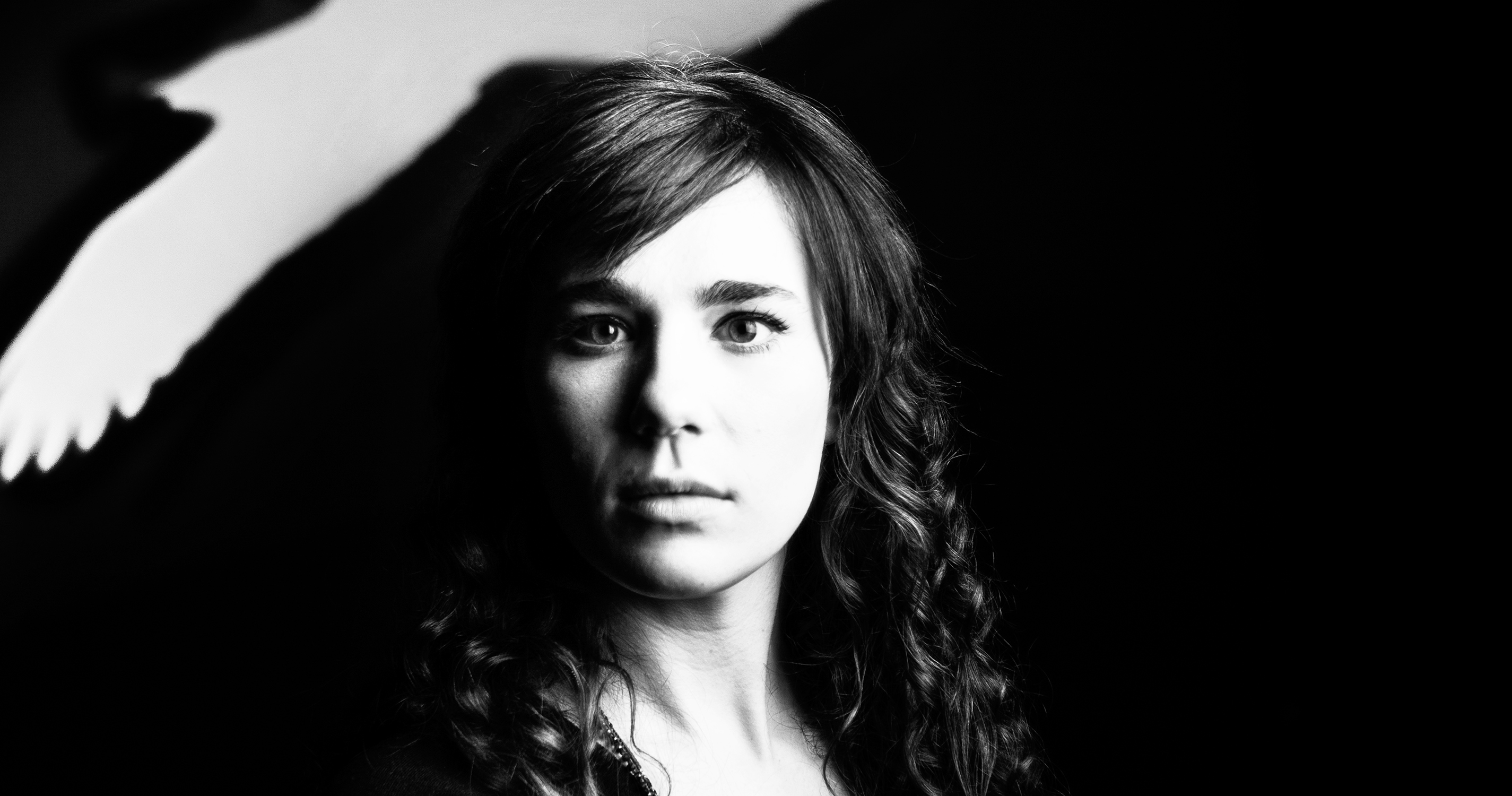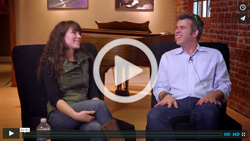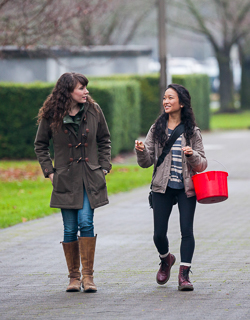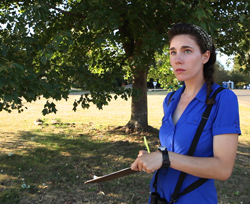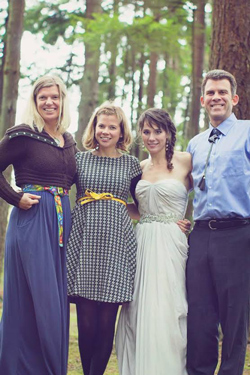Kaeli Swift ’09 wears a mask as she uncovers the corpse. She knows she’s being watched.
Eerie and emotionless, the mask does its job. Swift’s hazel eyes meet obsidian stares, and her experiment begins.
Swift studies crow funerals, raucous avian flash mobs that form when a dead crow is spotted.
Crows are smart. They remember faces of threatening people and warn others to be on the lookout. To avoid being recognized and affecting the birds’ behavior, Swift and her colleagues wear masks when unwrapping the stuffed crow used in their research.
While staying undetected by the birds, Swift’s work is earning visibility of a different sort. She was recently featured on the PBS program “IN Close.”
The Nest
Swift netted her mentors at Willamette before earning a National Science Foundation fellowship to pursue crow research at the University of Washington.
When she landed as a freshman, Swift knew she wanted to study birds. It didn’t take long to track down her undergraduate advisor, Dave Craig.
“One thing I knew that I was especially good at—for all of the other things that I felt doubt about—was networking,” Swift says. “I like birds,” she told Craig. ”I’ve been told you like birds. I want you to be my advisor.”
As a biologist who studies bird behavior, Craig says he couldn’t pass up a student named “Swift,” a nimble species of bird that targets insects mid-flight.
Swift first became a masked crow menace through collaborative work with Craig. They investigated crows’ ability to recognize individual human faces. She found another mentor in Emma Coddington, a neuroethologist who studies the effects of stress on behavior and the brain.
“She was like a laser beam,” says Coddington, smiling as she remembered meeting Swift before the start of a tough physiology class. “She stood out because she was genuinely curious and kept asking questions that indicated she was constantly integrating, thinking about how this fits in her life.”
A key part of Swift’s undergraduate life was her work with Saturday Explorations and Willamette Academy. She describes teaching through the university’s youth programs as among her most meaningful personal and most valuable professional experiences. “It’s important that students see there are all kinds of people that do science,” she says.
The Leap
Graduation came and went. Though an important chapter in her story, it’s hard to picture Swift as a recent graduate unsure if she was cut out for academia.
As someone who also struggled to imagine herself as a scientist and professor, Coddington understood such self-doubt but had no question about Swift’s ability. Coddington hired her to help set up a new physiology lab in Olin Science Center, and Swift’s mentors encouraged her to apply for an NSF fellowship. Grad school was a way to explore how her passions for teaching, fieldwork and research could fit together in her life.
Swift credits Craig and Coddington for giving her the space and the encouragement she needed, when she needed it.
“They were there to support me when I said, ‘I don’t know if I’m the kind of person who could do this,’” Swift says. They told her, “You are. Do this.”
She did.
The Ascent
Her experience with animal behavior and physiology proved invaluable to her research into crow funerals. But Swift took off for graduate school with something more: She earned the respect and admiration of her professors, especially her mentors.
“Their role as advisors wasn’t this discrete four-year period when I was an undergrad,” she says. “They’re still the people I call when I’m most ‘done’ and when I have awesome triumphs. Having the support of people who understand what it’s like to be in this profession—and what it’s like to be in this profession as woman—is really important.
“I knew that I picked Willamette because I could get more one-on-one attention, but I never expected to have faculty that I would invite to my wedding—and who would show up! But they did.”
Swift’s relationship with her mentors is evolving. She’s more colleague than advisee now, visiting campus in December to teach Craig’s "Behavioral Ecology" class and again in January for a biology colloquium.
As her career takes flight, crows and the NSF won’t be the only ones watching Swift. Like the birds she studies, her friends and colleagues at Willamette will be on the lookout.
“She’s amazing, and it’s been a privilege to watch her,” says Coddington. “I’m excited to see who she continues to grow into.”
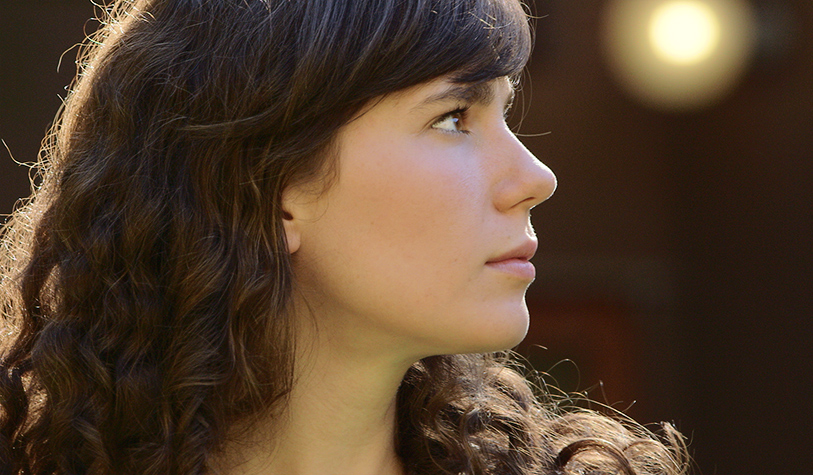
Photo courtesy of Michael James Werner

